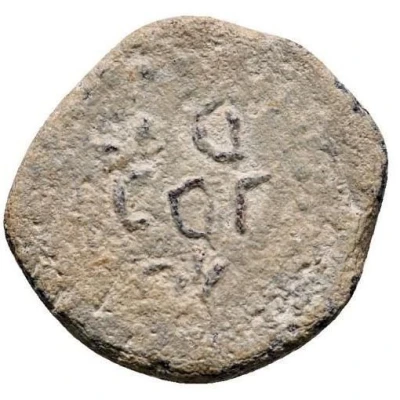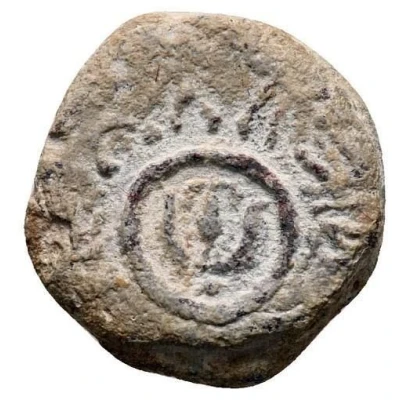Prutah or Token - Alexander Jannaeus 104 BC - 76 BC
| Lead | - | - |
| Issuer | Judea |
|---|---|
| King | Alexander Jannaeus (103 BC - 76 BC) |
| Type | Standard circulation coin |
| Years | 104 BC - 76 BC |
| Value | 1 Prutah |
| Currency | Prutah (140 BC-95 AD) |
| Composition | Lead |
| Shape | Round (irregular) |
| Technique | Cast |
| Demonetized | Yes |
| Updated | 2024-10-10 |
| Numista | N#124877 |
|---|---|
| Rarity index | 100% |
Reverse
Blank.
Comment
The obverse is nearly identical to that of coin No. 1151, but without any letters. The reverse of all known examples to date is blank. Similar types, larger or smaller and with similar or rosette motifs, often with loops on one or both ends, are definitely from the medieval period. Recent evidence suggests that this type is cast and not struck. This indicates they might also be from a later period, and only the evidence from a controlled archaeological excavation will eventually prove the nature of this enigmatic coin or token.David Hendin Guide to Biblical Coins Fifth Edition, p 201
Interesting fact
The Prutah or Token of Alexander Jannaeus (104 BC - 76 BC) from Judea, made of Lead, is significant because it features an image of a pomegranate on one side and an anchor on the other. This unique combination of symbols has led some numismatists to suggest that the coin may have been used as a form of "message coin" or propaganda tool, with the pomegranate representing the Jewish people and the anchor symbolizing the hope for a stable and secure future under Alexander Jannaeus' rule.

